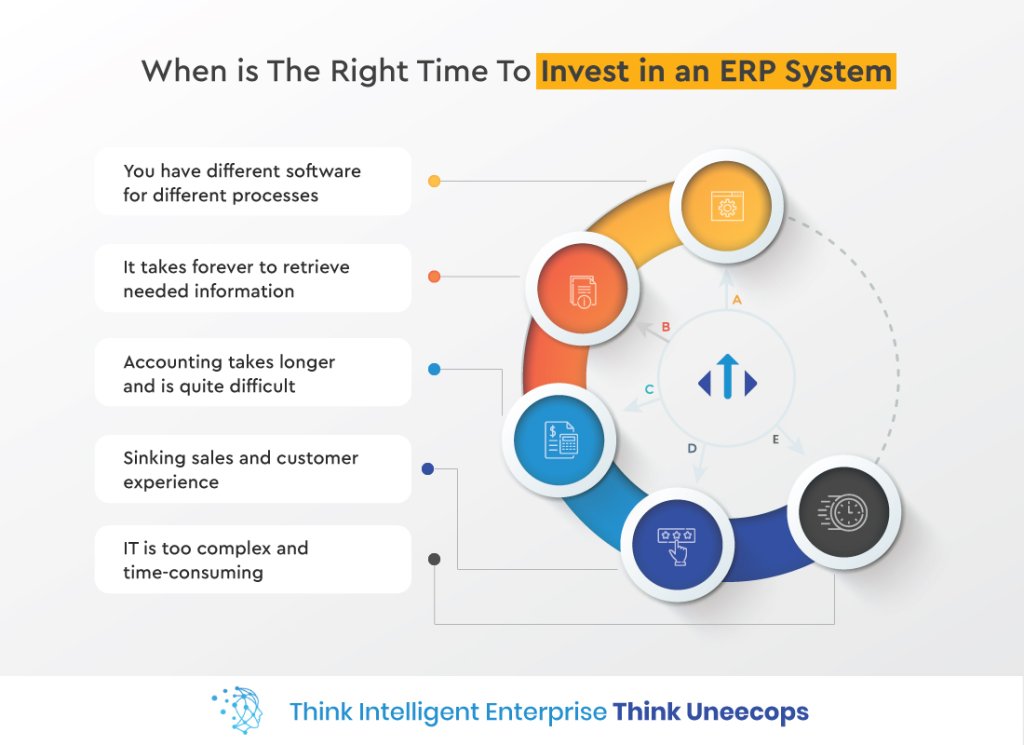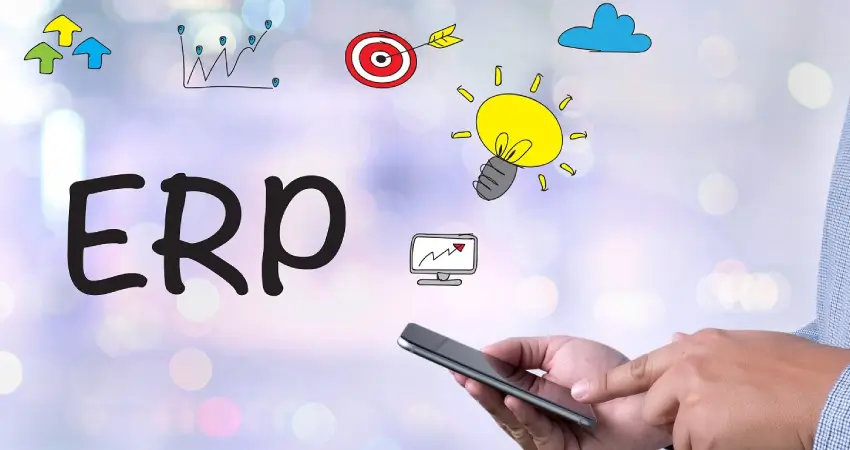To ERP or not to ERP – Isn’t this one of the major dilemmas for businesses? Especially if the business is small, you’ll end up finding multiple reasons to say No to ERP – budget constraints being at the top of the list. However, when seen through the business landscape, no business is too small for an ERP solution. It’s the mindset that steps the idea of regulating the number of users with the need for an ERP system.
The fact is that a fast-growing small business is more competitive than the peers in the same domain. But, the growing business will also bring along an immense workload on the administration, and failing to monitor each department will result in turbulence in the processes. As it is said, “A rapidly growing business becomes a victim of their success”. So, anticipate before your growth becomes troublesome for your company. A reliable, efficient ERP system will only help your small business to appear, react, and operate like an enterprise-scale business.
So, take a close look at your business and analyze if it is indicating any of the following signs that suggest the need of ERP system.
#Sign 1: Inefficient, Decentralized Processes
Staying on the same page is an arduous task when your employees from each department use different software to track, record, and process information. With running multiple front- and back-end systems, you risk more inefficiencies and damage critical business information.
The secret to a successful business is the power of its data. But, to utilize it to its maximum potential; businesses need a centralized platform to store information and save time and effort dissipated in switching back and forth between multiple standalone software. An efficient ERP system connects all the dots by streamlining the core business processes with a common thread to enable an integrated organization with a strong communication channel.
#Sign 2: Retrieving Required Information is Daunting
If you rely heavily on spreadsheets or siloed systems that demand constant monitoring and data entering, chances are you’ll take forever to retrieve critical business information related to sales till date, per day volume orders, real-time inventory stats, etc. In this digital era of the 4th industrial revolution, if your business is not capable of functioning at the lighting speed, you might be missing out on opportunities and ultimately profits.
As it is said, “Data is the New Oil of the Digital Economy”. But, you need to mine it as well! Critical business data must be easily accessible to your employees without delays and without having to search for it on multiple platforms. An ERP system renders a holistic view of the entire organization to the users, empowering them to access, share, and analyze accurate data anytime they need it.
#Sign 3: Managing Financials & Accounting is Time-consuming and Complicated
As the businesses expand and transactions increase, keeping up with the large volume of financial data becomes extremely difficult. Especially, if your employees use paper-based invoices and sales orders, a lot of time gets wasted in entering the data manually into accounting books or sales systems. This adds up to nothing but a considerable loss to the productivity and profitability of the business.
An ERP on the contrary can make a remarkable difference to a company’s financials. With all financials in a single database and accounting on autopilot, your employees won’t have to spend hours rekeying numbers, cross-posting information, or reconciling data manually. Freeing them from frustrating and complicated accounting and bookkeeping can result in enhanced employee productivity and efficiency in processes.

#Sign 4: Sinking Inventory, Sales, and Customer Dissatisfaction
Optimized inventory management is one of the important ethics for a successful business. Clear visibility of the products, their location, and quantity is vital for ensuring uninterrupted sales and CRM. When inventory resides in isolation, sales come to a haul, ultimately causing delays in deliveries. All this together affects the customer satisfaction and brand value of the organization in the market.
With a potential ERP system for startups, small businesses are empowered with the up-to-the-minute information related to inventory moment, pending sales order, shipment status, payment status, service issues, etc. without having to cross-check with the people in other departments. Also, the in-depth details on the complete lifecycle of the customers help businesses in serving them with the best-in-class services with personalized solutions.
#Sign5: IT Systems are Cumbersome and Tangled
Having multiple standalone software in an organization makes managing IT systems a nightmare. Customizing each of these systems and integrating them into each other is not just costly, but time-consuming as well. Also, their upgrades can be more trouble than their overall worth.
By ditching standalone software and adding a single ERP system for all your business needs provides more agility to your business to respond to the changing market scenarios. This one is probably one of the most prominent benefits of ERP in an organization that it will not just lessen the load on your employees but will also eliminate the need for frequent updates and security issues.
Spotted these Signs in your Business – What’s Next?
If you have identified a few of the pain points mentioned above and realized the need of ERP in business, it is time to get one. However, investing in the right ERP software is again a crucial task. But, you need not worry about the same as we are here to help you with this step.
With a deep understanding of business automation and expertise in handling successful ERP implementations, Uneecops brings to you budget-fit, suite-in-a-box Startup ERP software, SAP Business One Starter Package that starts at just Rs. 3,999/- per user per month with an implementation schedule of 15 days. Want to know more about this affordable SAP solution? Get in touch with us today!







